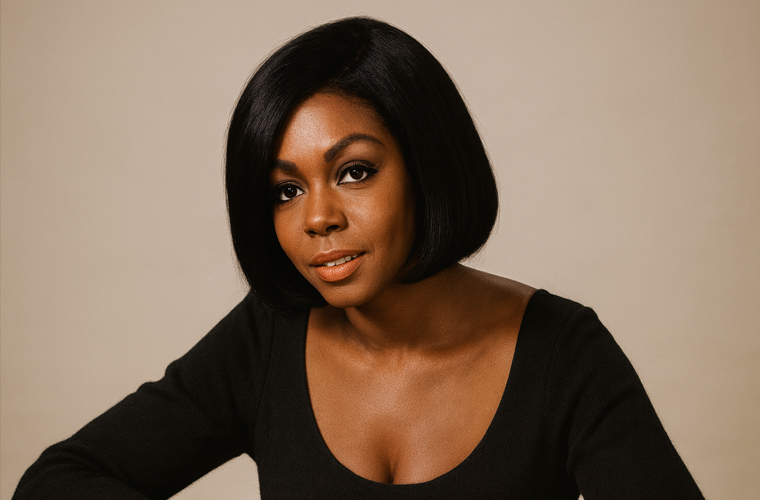Judy Lenteen Pace, born on June 15, 1942, in Los Angeles, California, is a pioneering American actress whose career spans over six decades, marked by groundbreaking roles in television and film, particularly during the blaxploitation era of the 1970s. Known for her striking presence and versatile performances, Pace became the first Black woman to secure a contract with a major motion picture studio and the first Black television villainess, paving the way for greater representation in entertainment.
Raised in a working-class family, Pace’s father was an airplane mechanic, while her mother worked as a dressmaker. She attended Marvin Avenue Elementary School, Louis Pasteur Junior High, and graduated from Dorsey High School in 1960. Pursuing higher education, she enrolled at Los Angeles City College, majoring in sociology. Her entry into the spotlight began through modeling; trained by her sister Betty, Pace auditioned for the Ebony Fashion Fair and became the youngest model on its 1961-1962 national tour.
This modeling success paved the way for acting. In 1963, she made her film debut as one of the title characters in William Castle’s horror-comedy 13 Frightened Girls!, marking the start of her on-screen journey.
Pace’s television career took off in 1968 when she landed the role of Vickie Fletcher in the ABC soap opera Peyton Place, portraying the first Black villainess on prime-time television and helping introduce a Black family to the series. Film critic Roger Ebert lauded her comedic timing in the 1968 youth film Three in the Attic, calling her a “quick, funny actress” who kept scenes lively.




















Her momentum continued with the role of Pat Walters in The Young Lawyers (1969–1971), earning her the 1970 NAACP Image Award for Outstanding Actress in a Drama Series. A standout performance came in 1971 as Linda Sayers, wife of football player Gale Sayers, in the acclaimed TV movie Brian’s Song, which highlighted interracial dynamics and earned widespread praise.
Pace became a staple on 1960s and 1970s TV, guest-starring on iconic shows like Batman, Tarzan, Bewitched, I Dream of Jeannie, The Flying Nun, I Spy, Ironside, The Mod Squad, Medical Center, That’s My Mama, Sanford and Son, What’s Happening!!, Good Times, Kung Fu, Shaft, and Days of Our Lives. In 1973, she took to the stage as Adelaide in a Las Vegas production of Guys and Dolls.
While television defined much of her work, Pace shone in films too. Early roles included The Fortune Cookie (1966), directed by Billy Wilder, and The Thomas Crown Affair (1968). She gained acclaim as Iris in Ossie Davis’s Cotton Comes to Harlem (1970), a key blaxploitation film. Throughout the 1970s, she appeared in numerous blaxploitation movies, embodying the era’s bold, empowered Black female characters.
Her film debut with Columbia Pictures in 1963 made her the first Black actress to receive such a studio contract, a milestone in an industry rife with barriers. Pace’s personal life is intertwined with her professional one. She dated baseball star Curt Flood after meeting him on The Dating Game in 1966. In 1972, she married actor Don Mitchell, with whom she had two daughters: actress Julia Pace Mitchell and Shawn Meshelle Mitchell. The couple divorced in 1984 (some sources note 1986).
Pace remarried Flood in 1986, supporting him through his battle with throat cancer until he died in 1997. Posthumously, she became a vocal advocate for Flood’s legacy, championing his role in establishing free agency for Major League Baseball players. She co-founded the Kwanzaa Foundation with Star Trek actress Nichelle Nichols to promote cultural education and community service. During the 1980s, Pace stepped back from acting to focus on raising her children and civic duties.
At 83 years old, Judy Pace remains an enduring figure in Black Hollywood, with a career active from 1963 to the present. Her trailblazing roles challenged racial stereotypes and opened doors for future generations of Black actresses. In July 2024, the Film Forum in New York celebrated her contributions with the “Blaxploitation, Baby!” festival, honoring 1970s Black cinema.
Pace stays engaged through social media, sharing updates on Instagram and Facebook, including a vibrant 82nd birthday post in June 2024. In March 2025, a YouTube feature explored her family life and enduring influence. She appeared on a live discussion with actress Vivian Reed on March 31, 2025, reflecting on her career. Judy Pace’s journey from Los Angeles classrooms to Hollywood’s silver screen exemplifies resilience and artistry. As she continues to inspire, her story reminds us of the power of representation in reshaping narratives.

